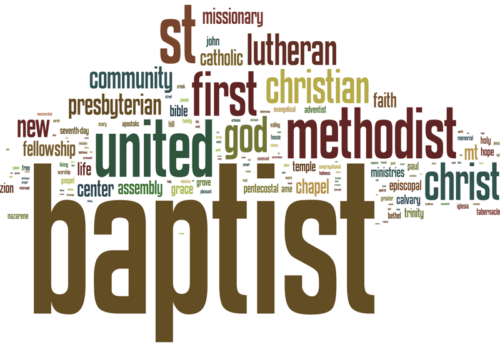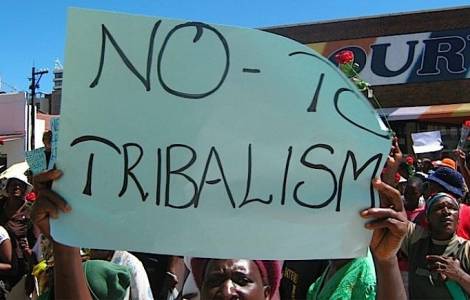

Signs of Division in the church (Body of Christ)
- What Is the Church or Temple
- Meaning of Division
- What is division in the church
- Signs of Division in the Church
- Denominational difference as a cause of division in the Church
- Tribalism as a sign of division in the Church
- Injustice as a sign of division in the Church
- Pride as a sign of division in the Church
- Exploitation as a sign of division in the Church
- Politics as a sign of division in the Church
- Unforgiveness as a sign of division in the Church
- Conclusion
What is the Church
In general, the church can be seen as a place or building where Christians gather to worship
According to the Vocabulary Dictionary: “A temple is a religious building that’s meant for worshiping or praying devoted to one specific god”. vocabular.com/dictionary/temple
That is to say that a church is a temple devoted to our God as Christians.
Following the use of the word temple in the bible according to the Old Testament was a building or place where people go to experience God, but after Christ’s coming death and resurrection, bringing salvation to mankind. The concept of the temple or church is from a building to an individual or the gathering of those who accept and believe in Christ.
Therefore, an individual or group of believers must not assemble in a particular place or building to experience God, but they themselves are the Church/Temple of God.
Thou the use of the Term “Church” in this article referred to a group of believers or gatherings.
Meaning of Division
According to the Oxford Dictionary
“Difference or disagreement between two or more groups, typically producing tension.”
What is Division in the Church
Division in the church is the state whereby the church is being divided as the result of the differences in opinion especially those signs of division in the church
Signs of Division in the Church
Denominational difference as a sign of division in the Church


Denominational divisions based on identity, beliefs, and traditions have been long-standing obstacles that separate the church. However, it is crucial to remember that the unity of the church should be rooted in a central purpose: dedicating ourselves to the unwavering devotion and service of God through Christ Jesus.
While denominational differences are essential, we must recognize that they should always play a secondary role in our committed pursuit of faith. By embracing this perspective, the church can foster a more cohesive and united body, transcending barriers and focusing on what truly matters – our shared bond with God.
Note: Paul and Apollos are replaced with names of denominations. You can click on the link above for the real original verses
“4. For while one saith, I am of Anglican; and another, I am of Baptist; are ye not carnal?
5. Who then is Methodist, and who is Pentecostal and Charismatic, but ministers by whom ye believed, even as the Lord gave to every man?
6. Deeper Life have planted, RCCG (Redeemed Christian Church of God) watered; but God gave the increase.
7. So then neither is he that planteth any thing, neither he that watereth; but God that giveth the increase
8. Now he that planteth and he that watereth are one: and every man shall receive his own reward according to his own labour.
9. For we are labourers together with God: ye are God’s husbandry, ye are God’s building.
10. According to the grace of God which is given unto me, as a wise masterbuilder, I have laid the foundation, and another buildeth thereon. But let every man take heed how he buildeth thereupon.
11. For other foundation can no man lay than that is laid, which is Jesus Christ.”
Some Church Denominations Include
- The Roman Catholic
- Eastern Orthodox Churches
- Early Christian
- Late Ancient and Medieval Christian
- Protestant etc.
For more about church Denominations
Tribalism as a sign of division in the Church
Tribalism as one among the signs of division in the church refers to the unfortunate situation where individuals prioritize their loyalty to their own tribe over their devoted service to God through Jesus Christ. This leads them to make decisions that favor their own tribe, often at the expense of their commitment to God.


Genesis 11:1-9
“
- Now the whole world had one language and a common speech.
- As people moved eastward,[a] they found a plain in Shinar[b] and settled there.
- They said to each other, “Come, let’s make bricks and bake them thoroughly.” They used brick instead of stone, and tar for mortar.
- Then they said, “Come, let us build ourselves a city, with a tower that reaches to the heavens, so that we may make a name for ourselves; otherwise we will be scattered over the face of the whole earth.”
- But the Lord came down to see the city and the tower the people were building.
- The Lord said, “If as one people speaking the same language they have begun to do this, then nothing they plan to do will be impossible for them.
- Come, let us go down and confuse their language so they will not understand each other.”
- So the Lord scattered them from there over all the earth, and they stopped building the city.
That is why it was called Babel[c]—because there the Lord confused the language of the whole world. From
“
The story of the people of Babel is one of unity and ambition. They all shared a common language and were determined to build a tower that would reach the heavens, hoping to make a name for themselves and avoid scattering from the presence of God. However, their plan went against God’s intended path for humanity, and He needed to intervene.
To halt their progress, God decided to divide them by causing them to speak different languages. This brings to mind the significant role that tribalism can play in creating divisions within the church. One might wonder why God would deliberately make them speak different languages when their unity seemed aligned with His ultimate plan for humanity. Wouldn’t their unified mission be in line with His desires, rather than some self-centered endeavor?
In response to this question, it is important to note that God did not cause them to speak different languages until they deviated from His original plan, which was for them to populate the earth. Proverbs 19:21 wisely reminds us that though individuals may have their own desires and motivations, it is ultimately God’s counsel that prevails and holds true.
“28. There is neither Jew nor Greek, there is neither bond nor free, there is neither male nor female: For ye are all one in Christ Jesus“
Galatians 3:28
This story serves as a reminder that when the church is united in Christ Jesus and speaks with one voice, extraordinary things can happen. It is when we align ourselves with God’s purpose that we find true unity and strength. Let us keep this lesson in mind as we strive for unity within our own communities, both within the church and beyond.
Injustice as a sign of division in the Church
“Injustice is the absence of justice: Violation of right, or the right on another.”
Webmasters Dictionary


individual or group. It is a concept that has plagued societies throughout history, creating a sense of inequality and unrest. Injustice can manifest in various forms, ranging from discrimination based on race, religion, or gender to the exploitation of marginalized communities for personal gain.
This absence of justice not only infringes upon the fundamental rights of individuals but also erodes the very fabric of a just and equitable society.
Whether it be the denial of basic human rights or the suppression of voices that challenge the status quo, injustice stands as a stark reminder of our collective failure to uphold the principles of fairness and equality.
Only by actively addressing and combating injustice can we hope to create a world where every person’s rights and dignity are respected and protected.
Injustice within the church encompasses the violation of members’ rights, often stemming from factors such as social status, tribe, ethnicity, or other associations.
One particular scenario involves the unfair reservation of seats for individuals belonging to the upper class, prompting those from lower socioeconomic backgrounds to relinquish their spots even if they arrived earlier. Unfortunately, the opinions and voices of those in the lower class are often disregarded due to their lack of financial influence and power.
Moreover, the church leadership’s excessive greed is readily apparent, as they prioritize personal gain over addressing the needs of the congregation.
It is disheartening to witness some churches possessing institutions and properties exclusively accessible only to the upper class, despite the fact that their establishment and financing have relied on contributions from both the upper and lower classes. This blatant act of discrimination undermines the ethos of unity and shared responsibility within the church community.
Pride as a sign of division in the Church
Pride, often referred to as the feeling of superiority and high self-esteem over others, can result in arrogance and disrespect towards others. This issue is particularly prevalent in the church, where individuals tend to notice these characteristics in others while failing to recognize it in themselves.
It is important for us to address our own pride before attempting to point it out in others, as this will allow us to see clearly and provide genuine support.
In order to overcome pride, one must embrace humility and maintain a humble demeanor. By doing so, we can foster an environment of understanding and personal growth within the church community.


“When pride cometh then cometh shame: but with the lowly is wisdom.“
Proverb 11:2
“But he gives more grace. Wherefore he say God resists the proud, but gives grace to the humble.“
James 4:6
“How have you fallen down from heaven you morning star, son of the dawn
You who once laid low the nations! You said in your heart , I will ascend to the heavens ; I will raise my throne above the stars of God
I will sit enthroned to the mount of assembly on the uttermost heights of the north, I will ascend above the tops of the clouds. I would make myself like the highest.“
Isaiah 12:14
“Thine heart was lifted up because of thy beauty, thou has
corrupted thy wisdom because of thy beauty, thou has
corrupted thy wisdom by reason of thy brightness: I will
cast the to the ground, I would lay thee before kings, that they may behold thee.“
Ezekiel 28:17
Exploitation and Manipulation as a cause of division in the Church
Exploitation and manipulation in the church is a topic that demands attention. While the church plays an important role in society by providing spiritual guidance and support to millions, there have been instances where individuals in positions of power have abused their authority.
These acts of exploitation and manipulation within religious institutions not only tarnish the reputation of the church but also inflict deep wounds on the faith and trust of its members.


Politics as a sign of division in the Church
Within the church, politics has cast a divisive shadow, causing rifts and heated debates among congregations worldwide. The marriage between politics and religion has led to a struggle for power and the interpretation of divine values. Congregants find themselves torn between loyalty to their political affiliations and the teachings of Christ, breeding resentment and discord.
However, we can overcome these challenges by focusing on the mission of love and unity that Jesus set before us. By embracing diversity and respecting our differences, we can create an environment where political ideologies do not hinder our spiritual growth. Let us work together to create a church where love and unity prevail, and where we can all coexist peacefully in the presence of the divine.


Unforgiveness as a sign of division in the Church
The church is made up of all the people who have accepted Christ as their savior and follow his teachings. It is not just a building. The term “church” in the Bible always refers to people, the ones who follow Jesus. Being a part of the body of Christ means that we are continuously shaped to become more like Christ. We achieve this by allowing the Bible to guide our faith and lives, by worshiping God, celebrating sacraments, and living in harmony with each other.


Becoming a member of the church means that you belong to Jesus Christ and the people of God. The church is referred to as the “bride of Christ,” emphasizing that it is deeply and intimately related to Jesus, bound to him by a covenant, similar to the covenant of marriage. Christ’s presence is the foundation of the church’s life.
Through the church, Christ encounters, calls, transforms, equips, and sends his people into the world. The church is God’s instrument for expressing his compassion and concern for the world and introducing salvation to those who do not know him. It is essential for Christian believers.
In the church, Christians are inseparably bound to one another. The idea of an individual Christian alone with God is foreign to the New Testament. Christians are encouraged to call God “our Father,” and not just “my Father.”
The importance of community in the Bible cannot be overstated. The church, as one body, implies that Christians not only belong to Jesus Christ but also to each other. Fellowship with Christ and each other unites believers as a single family bound by love.
Each individual is needed and important within the church. In 1 Corinthians 12, the church is described as a body, with each person playing a crucial role. All person’s talents enrich the church and enable it to carry out its mission in the world. Within the church, we are all held accountable to each other.
We take care of each other, support each other in developing better relationships with Christ, and gently ensure that we remain true to our beliefs, even when we face temptations from the sins present in the world.
Conclusion
Having discussed the signs of division in the Church
Did I miss anything I like to hear from you
- Which among the signs of division is doing more damage to the Church?
- Did I not mention any signs of division you think is causing more damage in the Church?
- Do you have any topic you want us to write about?
You can let me know what you think by commenting below.
Was this article useful to you?
If yes you can click on the share to reach others you think might be useful to.
You can also subscribe to our newsletter to get notified of our recent post.
READ: The Influence of Politics in the Church
